Search Results
Showing results 1 to 20 of 116
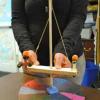
Carousel Pump
Source Institutions
In this activity, learners build a carousel toy that spins when pushed down.
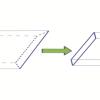
The Shape of Floatation
Source Institutions
In this activity (on page 2 of the PDF under GPS: Sailboat Design Activity), learners will discover how the shape of an object, not just its weight, determines whether it floats or sinks.
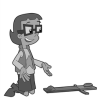
Lifting with Levers!
Source Institutions
In this fun hands-on activity learners explore a simple machine: the lever. What happens to a load when you multiply the length of a lever? Find out here!
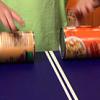
Soup Can Derby
Source Institutions
In this activity (on page 2 of PDF under GPS: Roller Coaster Design Activity), learners will use food cans of many different properties (sizes, shapes, and weights) and set two cans on their sides at
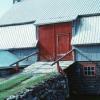
Ramps 1: Let it Roll!
Source Institutions
In this activity about ramps, learners explore and measure the rate at which spherical objects roll down a ramp.
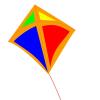
Building Tetrahedral Kites
Source Institutions
Working in teams of four, learners build tetrahedral kites following specific instructions and using specific materials.
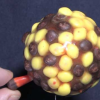
Best Bubbles
Source Institutions
In this activity, learners experiment with creating various types of bubble solutions and testing which ingredients form longer-lasting bubbles.

Magnet Mania
Source Institutions
In this activity, learners explore the relationship between electric charges and magnetic fields.

Delta, Delta, Delta
Source Institutions
In this experiment, learners construct an equilateral triangle using graph paper, a pencil, protractor and ruler. They also make a "laser triangle" using a laser pointer and front-silvered mirrors.
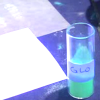
Glowing in the Dark
Source Institutions
In this activity, learners explore phosphorescence and how certain materials can absorb and store energy from a light source.
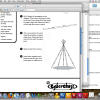
Make a Tikiville Teepee
Source Institutions
In this great hands-on activity, learners use patterns to make a teepee from newspaper that they sit inside.
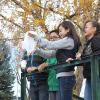
Egg-cellent Landing
Learners recreate the classic egg-drop experiment with an analogy to the Mars rover landing. The concept of terminal velocity will be introduced, and learners perform several velocity calculations.
Soaring Towers: Building with Recycled Materials
Source Institutions
In this activity, learners will build the highest tower they can out of recycled materials.
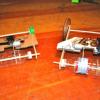
Bottle Cars
Source Institutions
In this activity, learners explore motion, energy, and electricity by constructing bottle cars that run on motors.
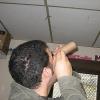
Spectroscope
Source Institutions
In this activity (posted on March 12, 2011), learners follow the steps to construct a spectroscope, a tool used to analyze light and color.
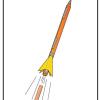
3...2...1 Puff!
Source Institutions
In this activity, learners build small indoor paper rockets, determine their flight stability, and launch them by blowing air through a drinking straw.
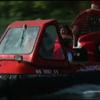
Balloon Hovercraft
Source Institutions
In this activity (on page 2 of the PDF under GPS: Luge Activity), learners will construct a model hovercraft out of an empty spool and a piece of cardboard.
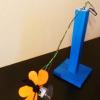
Motorized Balancing Toy
Source Institutions
In this activity, learners build a toy that flies in circles. This activity introduces learners to center of mass, torque, and rotational motion.
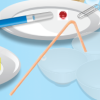
Density Intensity
Source Institutions
In this activity on page 12 of the PDF (Rethinking the 3 R’s: It’s Easy to be Green), learners examine how recyclable materials are separated by various properties at recycling centers.

Building a 3-D Space Maze: Escher Staircase
Source Institutions
In this activity (page 95 of the PDF), learners create Escher Staircase models similar to those that were used by Neurolab's Spatial Orientation Team to investigate the processing of information about
